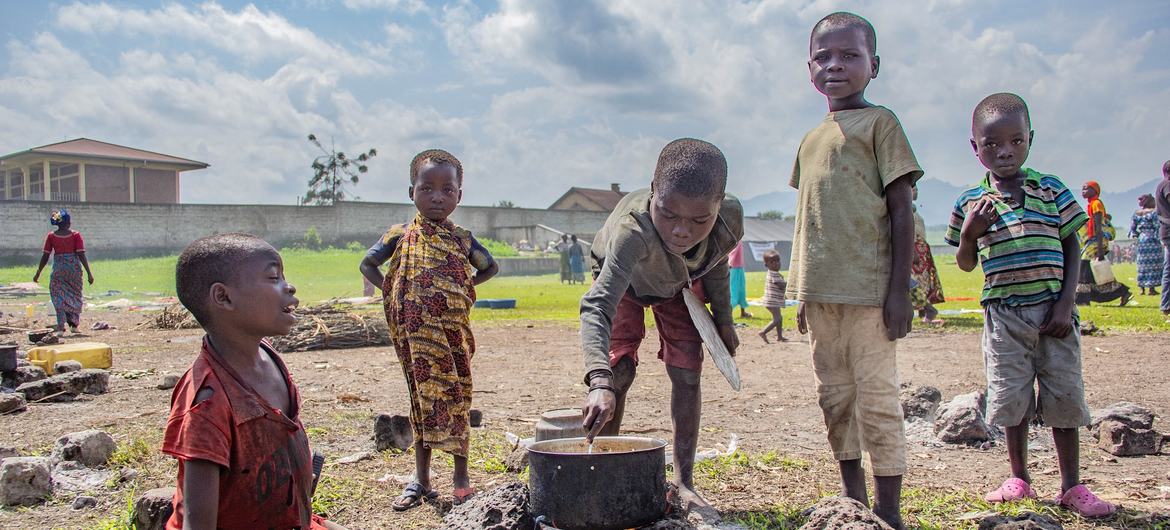UNICEF: A record 37 million children displaced worldwide

Conflict, violence and other crises left a record 36.5 million children displaced from their homes by the end of last year, the UN Children’s Fund (UNICEF) estimates – the highest number recorded since the Second World War, the agency said on Friday.
This figure includes 13.7 million child refugees and asylum-seekers, and nearly 22.8 million, who are internally displaced due to conflict and violence. However, not included are children displaced by climate and environmental shocks or disasters, as well as those newly displaced in 2022, including by the Russian invasion of Ukraine.
"We can't ignore the evidence: The number of children being displaced by conflict and crises is rapidly growing – and so is our responsibility to reach them," said UNICEF Executive Director, Catherine Russell. "I hope this alarming number will move governments to prevent children from being displaced in the first place and when they are displaced, to ensure their access to education, protection, and other critical services that support their wellbeing and development now and in the future."
As the number of displaced and refugee children reaches a record high, access to essential support and services like healthcare, education and protection is falling short. Uprooted children – whether refugee, asylum seeker or internally displaced – can also face grave risks to their well-being and safety. This is particularly true for the hundreds of thousands of unaccompanied or separated children who are at heightened risk of trafficking, exploitation, violence and abuse. Children account for approximately 28% of trafficking victims globally.
UNICEF is calling on governments to take action to level the playing field for all refugee, migrant and displaced children in the following six aspects: to provide equal support to all children – wherever they come from; recognize refugee, migrant and displaced children as children first and foremost – with rights to protection, development and participation; to increase collective action to ensure effective access to essential services – including health care and education – for all uprooted children and families regardless of status; to protect refugee, migrant and displaced children from discrimination and xenophobia; to end harmful border management practices and child immigration detention; to empower refugee, migrant and displaced youth to unleash their talents and realize their full potential.

